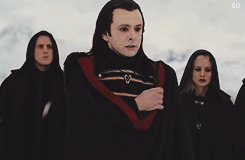A few answers: (since there's never just one)
- Some people who became enlightened were doing it just for their themselves- like in a selfish way
- For example: Some of the monarchs said they supported the enlightenment and were enlightened just to get the support of the people and therefore gain power.
- What sort of actions would name an absolutist leader "enlightened"?
- enlightened absolutists would let their people use their own reason
- Therefore they could usually practice whatever religion they wanted (except for Judaism of course)
- One problem with this was that any absolutists who were in favor of enlightenment usually had to quarrel with Parliament a little- because Parliament wasn't really into the whole let's make Europe great again thing
Side Note!!:
- Parlement v. Parliament
- PARLEMENT- a judicial body located in France
- PARLIAMENT- a representative body located in England
So now back to absolutism and the Enlightenment: Could an absolutist monarchy really be enlightened?
- Well, no.
- This is mainly because for a monarchy to be in favor of enlightenment and therefore in favor of all people using their own reason, that would make the monarchy a constitutional one
- Bottom line: A constitutional monarchy is NOT absolutism so there can be no enlightened monarchy.
But where does this leave Catherine the Great?
- True- she is known as a constitutional monarch, but how? and why?
- Catherine allowed her people education through reforms and the publication of the Encyclopedia, HOWEVER, she still kept them in line and showed who really was in charge
- she was also a big fan of domestic reform, and expanding the borders (she put the state first, a characteristic of a monarch)
- so basically, she did it all
she was also way better than Peter, mostly because Peter the Great westernized Russian armies, but it was Catherine who westernized the thinking of the Russian nobility
Other Important Monarchs that you should probably know:
Fredrick:
- Good old Freddy was a big old hypocrite
- He condemned serfdom, but then didn't actually free anyone from it
- yet another example of a ruler saying they are for something just to gain power
- The reason he didn't end up acting on his words was because freeing people from serfdom would undermine his own power
Maria Therese:
- she went into a lot of expensive wars, something a monarch happens to do very often
- as Lily said, she "started the wave of enlightened absolutism"
- She also had three pretty cool reforms:
- Limited the influence of the papacy
- sought to improve agriculture
- series of administrative reforms to strengthen the central bureaucracy
Joseph II:
- a revolutionary Habsburg
- he was the son of Maria Therese
- He continued to support the state like his mother
- In terms of religion, he wanted Catholicism to be the guiding force of faith but was tolerant to other religions, even Judaism and Protestantism (gasp!)
- He too, like Fredrick, wanted to abolish serfdom
- the difference between the two is that Joseph actually tried, even though he failed
- This is the weird part- the reason he failed at abolishing serfdom was not only because the upper class were against it, but the workers enslaved by serfdom didn't even want to be freed!
- What?!
- basically, the serfs didn't know any other life outside of serfdom, and they feared that if they were freed from it, they would no longer have jobs and the monarchy would never be able to pay all of them
* due to the fact that I am unable to find the exact map in the book that you all requested, here is a different but similar one*
So, the European leaders were trying to get rid of Poland by slicing it up and dividing it among themselves
Now, for some laughs:
The emotional stages of when Yarnall assigns a test the last day before break: (told through gifts of Aro)
Stage 1: Shock
Stage 2: anger

Stage 3: Hysteria
Stage 4: acceptance and realization that in two days you will be in a food coma anyway



No comments:
Post a Comment